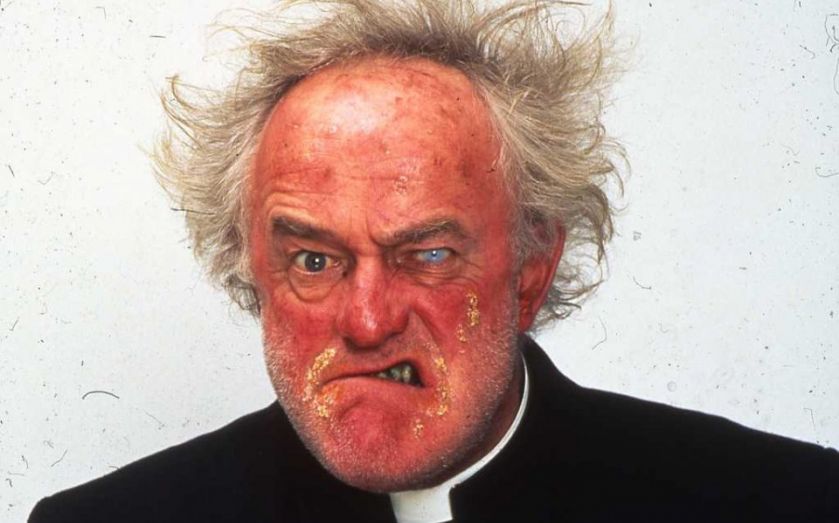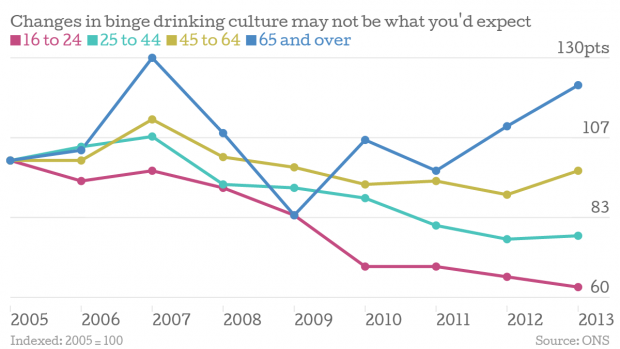Booze Britain? Why over-65s are the UK’s fastest growing group of binge drinkers

We’ve all seen them: in bars, on the streets, in the parks. Yep, the alarming statistic is true: young people in Britain going teetotal. And if you think the world is turning tipsy-turvey consider this: the fastest growing group of binge drinkers is the over 65s.
According to data published by the Office for National Statistics today, in 2013 binge drinking was higher among the 25-44 age group than it was in the 16-24 age group, where it has long been declining. A binge is categorised as six or more units for a woman or eight or more for a man.

The over 65s may be the lowest group, but look what happens when we index the data (start it all from 100 per cent for 2005, so it only shows change).


We should of course point out that the over-65s started off with very few binge drinkers – so pensioners are unlikely to be heading inexorably into a Monty Python sketch.
And according to the figures, over a fifth of adults in the UK no longer drink any alcohol at all. Meanwhile, the percentage of adult respondents who engage in binge drinking has fallen.

If that sounds shocking, wait for the next shot: the proportion of young adults, those aged 16-24, who said they were tee-total grew 40 per cent between 2005 and 2013, the last year for which the ONS has data.
Interestingly, that change now makes the 16-24 age group the most likely to be teetotal. Some may point out that the legal drinking age is 18 and that might skew the sample. Underage teetotalism isn't won't to affect the rate of change, though – and 40 per cent is a big jump.

The data also shows some other, perhaps less surprising facts: girls are less likely to binge than boys (19 per cent versus 12 per cent) and, statistically, you are less likely to binge if you live with dependent children.
Finally, does geography make a difference? The map below suggests so. Here is a breakdown of the percentage of adults who binged in the week before the interview.
